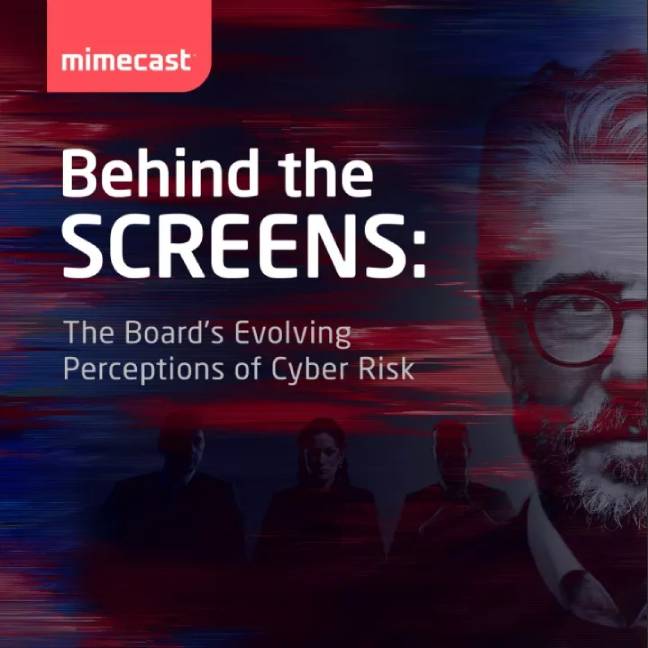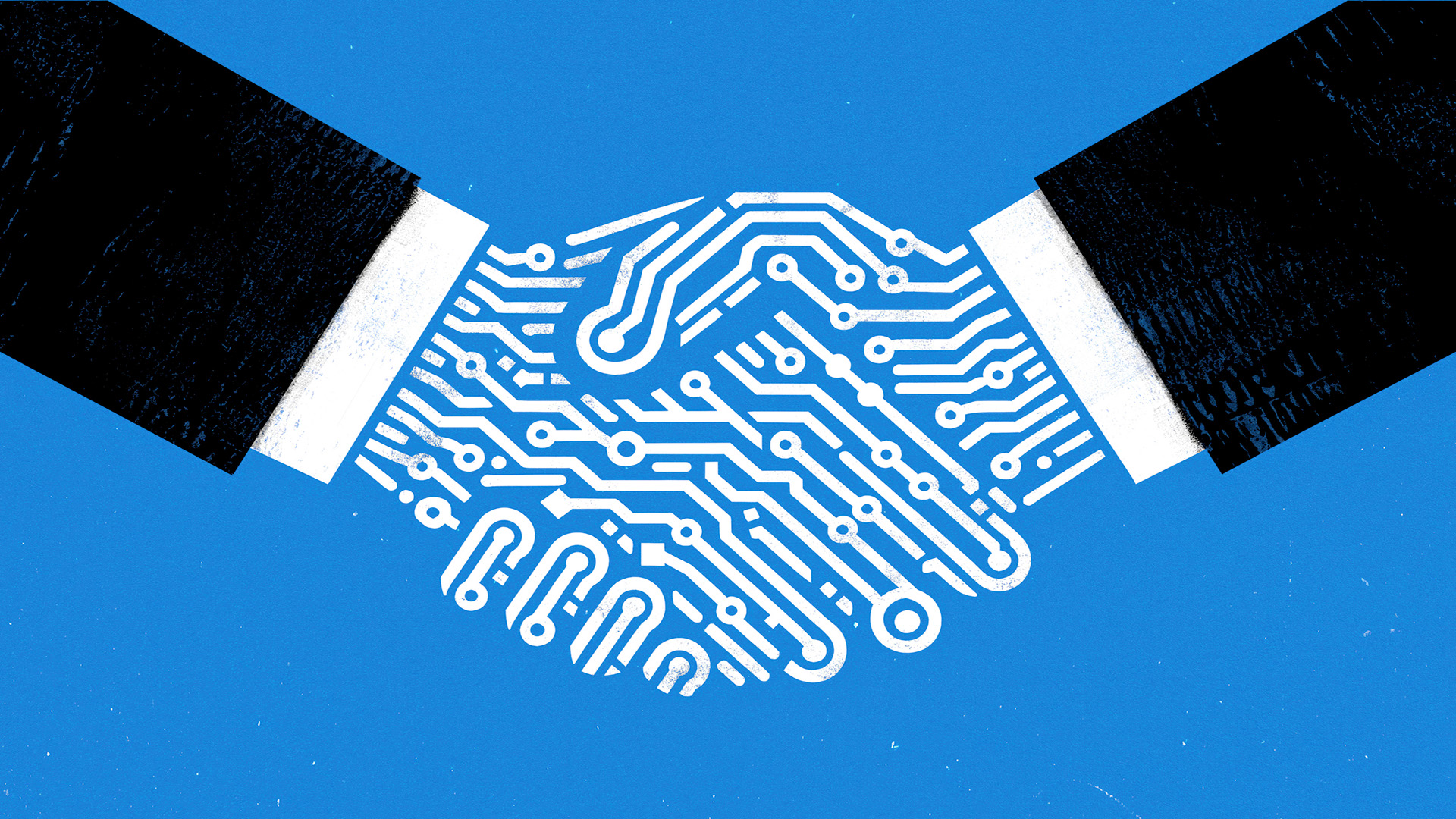The role of the CIO in enabling sustainable IT transformation
CIOs can unlock new growth opportunities by focusing on sustainable IT transformation


As businesses worldwide face growing pressure to address environmental concerns, the role of CIOs in driving forward business sustainability has become vital.
Far from being a peripheral figure in the environmental journey, the knowledge required and ability to execute an effective sustainability strategy means that CIOs should be central to the sustainability process from the beginning.
Increasingly, businesses are recognizing that sustainability is not the sole responsibility of specialized departments but should be baked into every aspect of the organization.

Bob is a people-centric transformational leader with a focus on driving positive change in how Logicalis and its employees impact the world.
As CEO of Logicalis, the architects of change, his mission is to create an organisation that helps customers succeed in a digital-first world.
Bob is passionate about harnessing the collective expertise within Logicalis around the globe, creating a blueprint for customers’ success, and fostering a deep commitment to driving a sustainable business that positively impacts the planet.
We’re seeing this not just in terms of company culture and collaboration but accountability too. A study by Harvard Business Review found that more than 70% of companies surveyed had incorporated sustainability-related performance metrics into their executive compensation plans.
This trend sends a clear message that sustainability goals are now firmly placed on the agendas of top-level executives, including the CIO.
Making green investment count
Recent research, including our own CIO Report, shows a notable shift in CIOs' investment strategies towards sustainable technologies.
This in part is the realization that sustainable practices are not just the right thing to do from an environmental perspective, but deliver commercial advantage across the board, from cost saving, brand enhancement, and long-term viability.
Stay up to date with the latest Channel industry news and analysis with our twice-weekly newsletter

In fact, the survey highlighted that 92% of CIOs interviewed see a clear link between ESG, sustainability, and enterprise value.
While increased investment in sustainable technologies is commendable, it must be approached strategically. The market for green tech has exploded and the options for investing are endless.
But investment without proper consideration can lead to wasted resources and minimal impact on the organization's overall sustainability goals.
This is just one reason CIOs should be central to the sustainability strategy from the beginning and work closely with other departments to identify areas where technology can have the most significant positive impact.
Each investment should be evaluated against specific sustainability goals, with the appropriate benchmarking and measurement in place.
Knowing where to start
RELATED RESOURCE

78 global CISOs share how you can communicate cyber risk as business risk
DOWNLOAD FOR FREE
It’s clear that the impetus is there for IT to become more involved in the sustainability agenda, but it's not always clear how to translate intention into action.
In my view there are practical steps CIOs can take now that will drive immediate positive change, as well as solidify the long-term role of the CIO in driving environmental sustainability.
There’s no sustainability plan without data
Data provides a baseline of current environmental performance, uncovers opportunities for improvement that could otherwise be missed, and helps set measurable targets and goals.
Latterly with data-driven monitoring, businesses can track progress, optimize resource usage, and identify cost-saving measures.

It’s also essential for regulatory compliance and transparency. It’s possibly the most essential part of any sustainability plan and the CIO is key to ensuring that data exists and is used to its full potential.
Most sustainability initiatives will either have a tech component or be tech contingent from smart buildings to water conservation.
These further compound the importance of having IT involved at the outset; helping assess the efficacy of each initiative, ensuring compatibility with existing systems and facilitating roll-out.
Optimize IT infrastructure
Optimizing IT infrastructure is now a must. Consolidating servers, switching to energy-efficient hardware and cloud adoption are powerful strategies that can reduce energy consumption and carbon emissions.
In more challenging economic times, CIOs are rightly looking at costs, but the two objectives can be met in tandem when decision-makers have good visibility across both the cost and environmental efficiency of their infrastructure.
Promote sustainable practices
CIOs have an important role to play in encouraging employees to adopt sustainable practices through technology. Leading by example and promoting the use of remanufactured equipment to stimulate the circular economy can help employees to improve their own tech life cycles while reducing emissions.

Implementing digital collaboration tools can reduce the need for business travel, leading to lower carbon emissions. Additionally, promoting remote work options can contribute to a more sustainable work environment.
In the last ten years, the role of the CIO has changed beyond recognition but like technology itself, it’s continuing to evolve.
Rather than seeing environmental sustainability as an onerous new responsibility, it should be seen as an opportunity for innovation, the benefits of which will not only be felt by the business but by the world at large.

Bob is a people-centric transformational leader with a focus on driving positive change in how Logicalis and its employees impact the world. As CEO of Logicalis, the architects of change, his mission is to create an organisation that helps customers succeed in a digital-first world.
Bob is passionate about harnessing the collective expertise within Logicalis around the globe, creating a blueprint for customers’ success, and fostering a deep commitment to driving a sustainable business that positively impacts the planet.
Before his tenure as CEO, Bob held the COO and CFO roles at Logicalis and has an extensive international background in transformation.
-
 What businesses need to know about data sovereignty
What businesses need to know about data sovereigntyWithout a firm strategy for data sovereignty, businesses put their data and reputations at risk
-
 Anthropic says MCP will stay 'open, neutral, and community-driven' after donating project to Linux Foundation
Anthropic says MCP will stay 'open, neutral, and community-driven' after donating project to Linux FoundationNews The AIFF aims to standardize agentic AI development and create an open ecosystem for developers
-
 Is diversity still a challenge in the channel?
Is diversity still a challenge in the channel?Industry Insights Despite progress, diversity remains a challenge in the tech channel, as women represent less than a quarter of the UK’s tech workforce and still face structural and cultural barriers
-
 Alteryx names former Salesforce, Oracle strategist as new global technology alliances lead
Alteryx names former Salesforce, Oracle strategist as new global technology alliances leadNews The former Salesforce and Oracle leader will spearhead Alteryx’s partner strategy as the vendor targets deeper ecosystem collaboration
-
 How channel-supported smart decisions can pay off now and in the future
How channel-supported smart decisions can pay off now and in the futureIndustry Insights How can partners help retailers make smarter IT investments this Black Friday?
-
 Palo Alto Networks to acquire Chronosphere in $3.35bn deal
Palo Alto Networks to acquire Chronosphere in $3.35bn dealNews The cybersecurity vendor will combine Chronosphere’s observability platform with its own Cortex AgentiX offering
-
 Circular services: The next growth engine for channel partners
Circular services: The next growth engine for channel partnersIndustry Insights Why circular services are the next growth engine for channel partners
-
 Nozomi Networks eyes channel growth with double executive appointment
Nozomi Networks eyes channel growth with double executive appointmentNews Matthew Cowell has been named as VP of strategic alliances, while Tyson Gerhold becomes VP of global partner and channel sales
-
 Illumio partners with Kyndryl to accelerate zero trust adoption
Illumio partners with Kyndryl to accelerate zero trust adoptionNews The collaboration pairs Illumio’s AI-powered threat containment with Kyndryl’s microsegmentation services to deliver security and compliance gains
-
 The power of partner ecosystems in today’s tax landscape
The power of partner ecosystems in today’s tax landscapeIndustry Insights Technology transformations enable tax teams to embrace partnerships in a more collaborative manner